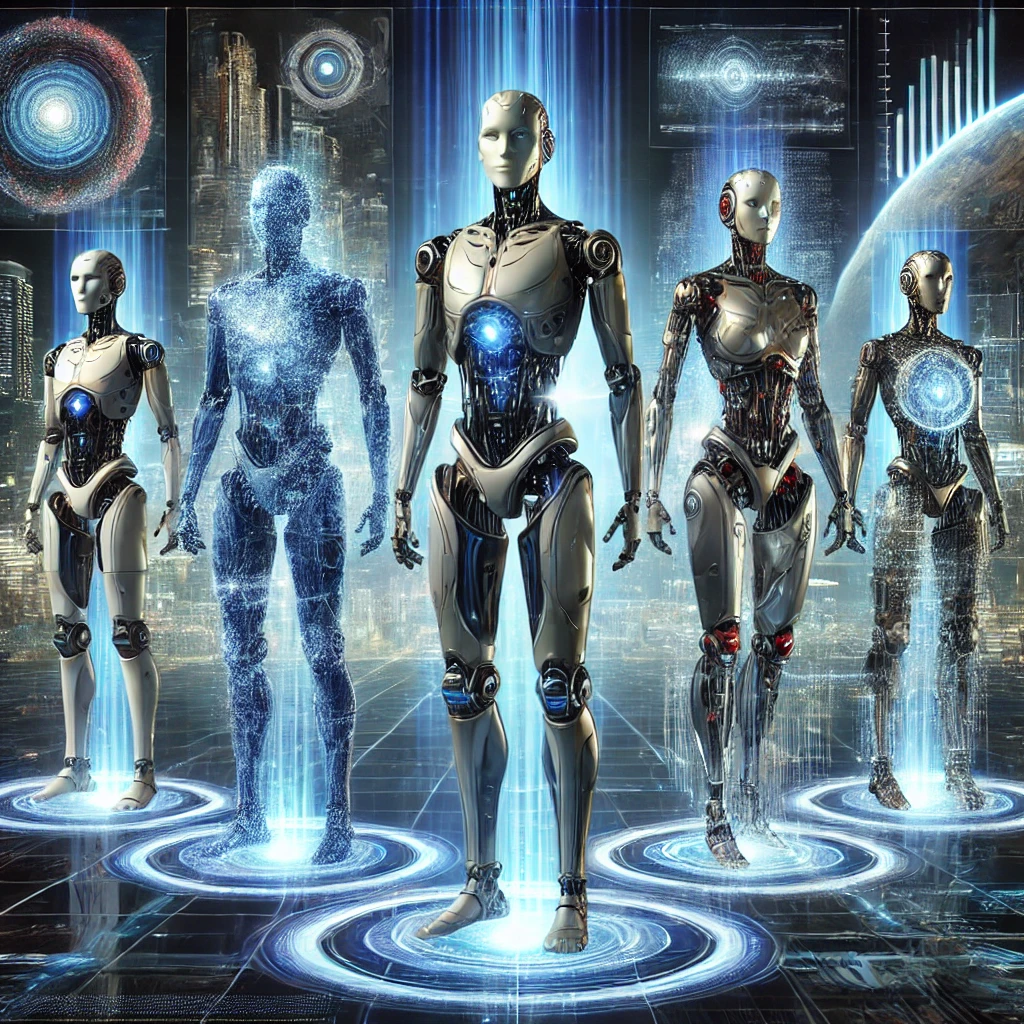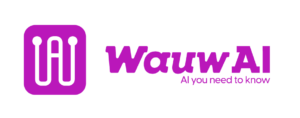
Artificial Intelligence (AI) has taken center stage in the tech world, sparking both excitement and debate. As AI promises to transform everything from our daily routines to entire industries, the biggest names in tech are sharing their thoughts on its potential and pitfalls.
Imagine a future where AI helps cure diseases, automates tedious tasks, and solves complex global issues. Sounds amazing, right? But what if it also poses risks we can’t yet foresee?
Tech visionaries like Elon Musk, Bill Gates, Jack Ma, Tim Cook, and Sam Altman are all weighing in on this AI revolution. Their views range from enthusiastic optimism to cautious concern, painting a complex picture of AI’s future.
Will AI be humanity’s greatest ally or its biggest challenge? The answer likely depends on how we develop and manage this powerful technology. As these tech leaders share their insights, one thing is clear: the AI revolution is here, and it’s up to us to shape its impact on our world.
The perspectives on AI from prominent figures like Jack Ma, Elon Musk, Bill Gates, Tim Cook, and Sam Altman vary widely, both in terms of optimism and caution. Here’s a summary of their key points, including the pros, cons, and future views they hold about AI.
Don’t want to read? have a listen:
1. Jack Ma (Founder of Alibaba)
Pros:
- Job Transformation: Believes AI will create new jobs and opportunities. Emphasizes that it will improve efficiency and replace repetitive tasks.
- Human-Centric: Ma thinks that AI should be developed with a focus on augmenting human abilities, not replacing them.
Cons:
- Not the Biggest Threat: Ma is less concerned about AI compared to others like Elon Musk. He’s expressed skepticism about AI being a serious threat to humanity, indicating that we can manage it responsibly.
Future Outlook:
- AI as a Helper: Jack Ma sees AI more as a tool to aid humanity rather than something that poses existential risks. He believes the future will be a blend of machine intelligence and human ingenuity, where technology helps humanity solve problems like environmental sustainability.
2. Elon Musk (CEO of Tesla, SpaceX)
Pros:
- Automation Benefits: Musk acknowledges the potential for AI to dramatically improve productivity, especially through automation in industries like manufacturing and logistics.
- AI in Space: He sees AI playing a vital role in advancing space exploration and colonizing other planets.
Cons:
- Existential Threat: Musk is one of the most vocal critics of AI, stating that it could be the “biggest existential threat” to humanity. He fears a scenario where AI becomes uncontrollable, potentially causing global harm.
- Superintelligence Risk: He warns about the risks of developing artificial general intelligence (AGI), where machines could surpass human intelligence and potentially become harmful.
Future Outlook:
- Regulation Urgency: Musk has repeatedly called for preemptive regulation of AI development to mitigate risks. He advocates for AI safety and transparency, suggesting that without strict oversight, AI could lead to catastrophic outcomes.
3. Bill Gates (Co-Founder of Microsoft)
Pros:
- Innovation and Efficiency: Gates is optimistic about AI’s potential to improve productivity, enhance healthcare, and solve global issues such as climate change and education. He believes AI will fundamentally change industries by making them more efficient.
- Health and Education: Gates sees AI playing a transformative role in health research, particularly in personalized medicine and tackling diseases. In education, AI can be used to provide tailored learning experiences.
Cons:
- Job Displacement: While he is optimistic, Gates warns that AI will inevitably disrupt jobs, especially in routine-based industries. This may create significant economic inequality if not managed properly.
Future Outlook:
- Balanced Optimism: Gates is generally positive about AI’s future, but he emphasizes the need for society to prepare for job shifts and ensure equitable access to AI’s benefits. He supports regulation but does not share Musk’s extreme concerns.
4. Tim Cook (CEO of Apple)
Pros:
- AI for Augmentation: Cook views AI as a means to augment human capability rather than replace it. He sees AI’s potential to help improve areas like health, safety, and security through machine learning algorithms.
- Privacy-Centric AI: At Apple, Cook has emphasized the need for privacy when developing AI. He supports AI that respects user privacy and focuses on enhancing user experiences in a responsible way.
Cons:
- Ethical Concerns: Cook is cautious about how AI is developed and deployed, particularly in relation to privacy and surveillance. He warns against letting AI become invasive in users’ lives without their consent.
Future Outlook:
- Human-First Approach: Cook’s vision of AI is more practical, focusing on user-centric AI applications that enhance daily life but within ethical constraints. He doesn’t view AI as an existential threat but stresses the importance of responsible deployment.
5. Sam Altman (CEO of OpenAI)
Pros:
- AI for Human Advancement: Altman sees AI as a powerful tool that can improve human life across many domains, from healthcare to education, energy, and transportation. He believes AI can solve some of the biggest challenges facing humanity.
- Economic Growth: Altman views AI as a potential driver for economic growth, capable of generating wealth and making high-quality services more accessible globally.
Cons:
- Societal Disruption: While Altman is optimistic about AI’s potential, he also acknowledges the significant disruption it could cause to employment, societal norms, and governance. He stresses the need for preparation for such disruptions.
- AGI Concerns: Similar to Musk, Altman is wary of AGI* development, acknowledging its potential dangers if not properly aligned with human values.
Future Outlook:
- Careful Progression: Altman advocates for a careful and deliberate approach to AI development, ensuring that its benefits are broadly shared. He believes AGI* could be one of humanity’s greatest achievements but only if it is created safely and responsibly.
Summary: Pros, Cons, and Future Outlook Comparison
| Name | Pros | Cons | Future Outlook |
| Jack Ma | Job creation, human-centric AI, improving efficiency | Skepticism toward AI as an existential threat | AI as a helper to solve problems, focusing on human-technology collaboration |
| Elon Musk | Automation, AI in space exploration | Existential threat, superintelligence risk | Urgent need for regulation to prevent catastrophic risks |
| Bill Gates | AI-driven productivity, healthcare, education | Job displacement and economic inequality | Balanced optimism, regulation needed to manage impacts |
| Tim Cook | AI for human augmentation, privacy-centric AI | Ethical concerns about privacy and surveillance | Human-first approach to AI, emphasizing user experience and responsibility |
| Sam Altman | AI for solving global challenges, economic growth | Societal disruption, AGI risks | AI can drive human progress, but AGI must be developed carefully |
Key Differences:
- Regulation and Risk: Musk and Altman are most vocal about the risks, particularly AGI, while Gates and Ma are more optimistic, seeing regulation as a tool to mitigate risks rather than AI being inherently dangerous. Cook emphasizes the need for ethical AI, especially around privacy.
- Optimism Levels: Gates and Ma focus on the societal benefits AI can bring, such as health and education improvements, while Musk remains the most concerned about its potential to become a significant threat to humanity.
- AI’s Role: While Musk and Altman think AI could lead to significant disruption or even extinction if not controlled, Ma and Cook focus more on AI as a tool for enhancing human lives responsibly, with less focus on the apocalyptic scenarios.
*AGI: Artificial General Intelligence, refers to a type of AI that has the ability to understand, learn, and apply intelligence across a wide variety of tasks at a human-like level. Unlike narrow AI, which is designed to perform specific tasks (e.g., facial recognition, language translation, or playing chess), AGI would have the capacity to reason, plan, learn, and adapt to new and unfamiliar situations, just as a human can.

